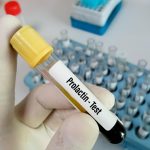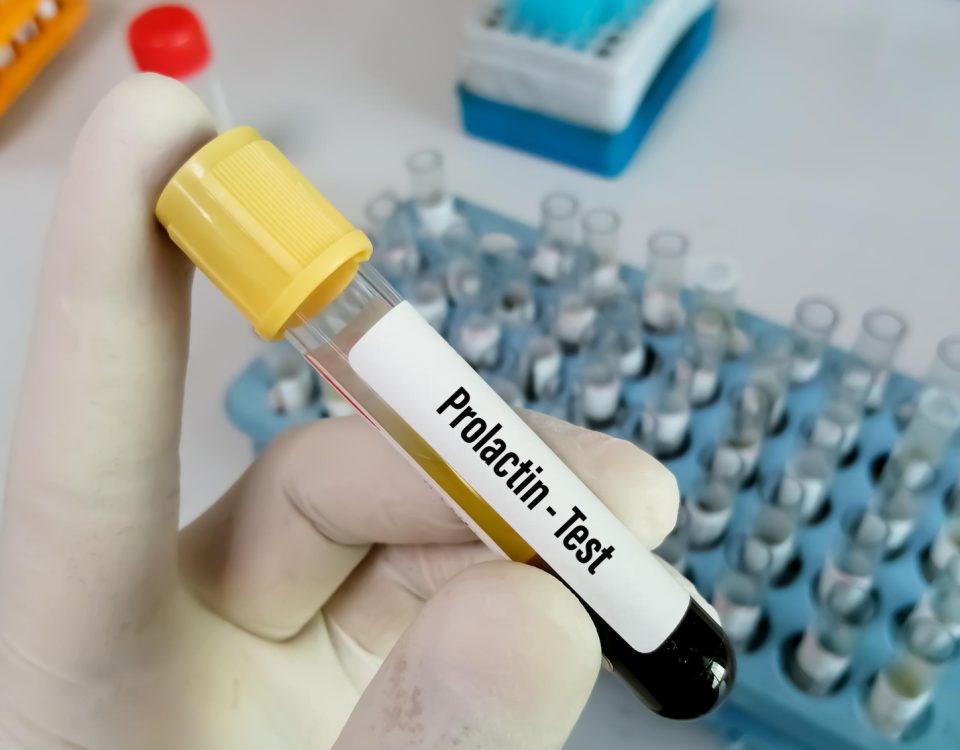
Male Libido: Factors That Affect It and How to Enhance It
October 14, 2025
Prolactin in men: How it affects libido, erection, and testosterone
December 5, 2025Vitamin D is known as the “sunshine vitamin,” but its role is not limited to bone and immune health. Numerous studies in recent years show that vitamin D also significantly affects the functioning of the endocrine system, contributing to the regulation of male hormones, particularly testosterone.
Testosterone is the primary male hormone that regulates sexual function, muscle mass, energy, and mood. Its deficiency can cause a range of symptoms, such as fatigue, reduced libido, increased fat, and loss of muscle tone. Today, we know that the vitamin D deficiency is closely linked to decreased testosterone levels, affecting overall male health and hormonal balance.
The Role of Vitamin D in the Body
Vitamin D acts primarily as a hormone rather than as a vitamin, since it is naturally produced in the skin after sun exposure and participates in numerous functions. It enhances the absorption of calcium and phosphorus, supports the immune system, regulates inflammation, and influences cardiovascular health.
However, researchers have identified vitamin D receptors in tissues related to testosterone production.such as the testes, hypothalamus, and pituitary gland. This indicates that vitamin D may play a role in the endocrine regulation of male fertility and sexual function.
The Relationship Between Vitamin D and Testosterone
Many scientific studies have highlighted a clear correlation between low vitamin D levels and reduced testosterone.
In one of the most well-known studies from the University of Vienna, men with vitamin D deficiency showed lower free testosterone levels. compared to those with normal levels. After supplementation with vitamin D for 12 months, the average testosterone level increased by up to 20%.
The explanation appears to lie in vitamin D’s effect on steroid hormone synthesis. By providing the necessary components for the conversion of cholesterol into testosterone, vitamin D supports the normal function of Leydig cells in the testes.
Factors That Reduce Vitamin D Levels
Vitamin D deficiency is extremely common, especially in men living in countries with limited sunlight or spending many hours indoors. The most common factors are:
- Minimal sun exposure or the use of sunscreen with a high SPF
- A diet low in fatty fish, eggs, and dairy products.
- Increased body weight (vitamin D gets “trapped” in fat tissue).
- Age over 50 years.
- Hormonal or endocrine disorders (e.g., hypogonadism).
Vitamin D deficiency affects not only the bones but also hormonal balance, reducing sexual energy, sperm quality, and mood.
How to Naturally Increase Vitamin D
Adequate vitamin D levels can be achieved through a combination of sun exposure, proper diet, and supplementation.
- Sun exposure: 10–20 minutes of daily exposure of the hands and face without sunscreen is sufficient for most people.
- Vitamin D–rich diet: salmon, mackerel, eggs, liver, fortified dairy products, and mushrooms.
- Vitamin D3 supplements: They can help in cases of low levels, always under a doctor’s guidance.
- Maintaining a healthy weight: Losing excess fat improves the bioavailability of vitamin D and testosterone.
- Regular exercise: Physical activity enhances metabolic health and helps regulate hormones.
Symptoms That May Indicate Deficiency
Although vitamin D deficiency is often “silent,” there are signs that should not be ignored:
- Fatigue and low energy.
- Reduced libido or erectile dysfunction.
- Irritability or depressive mood.
- Muscle weakness and joint pain.
- Frequent infections or low exercise tolerance.
Measuring serum vitamin D (25(OH)D) is simple and can provide valuable information about a man’s overall health.
Conclusion
Vitamin D deficiency can have a significant impact on testosterone levels., affecting sexual function, energy, and fertility. Proper nutrition, moderate sun exposure, and guidance from a specialist can help restore hormonal balance.
At MenTest, a leading center for the diagnosis and treatment of hormonal disorders, the specialized medical team provides personalized therapies for men with low testosterone or vitamin D deficiency.
Using modern methods, scientific evidence, and a holistic approach, our goal is to restore the body’s natural balance and improve overall male health and quality of life.




